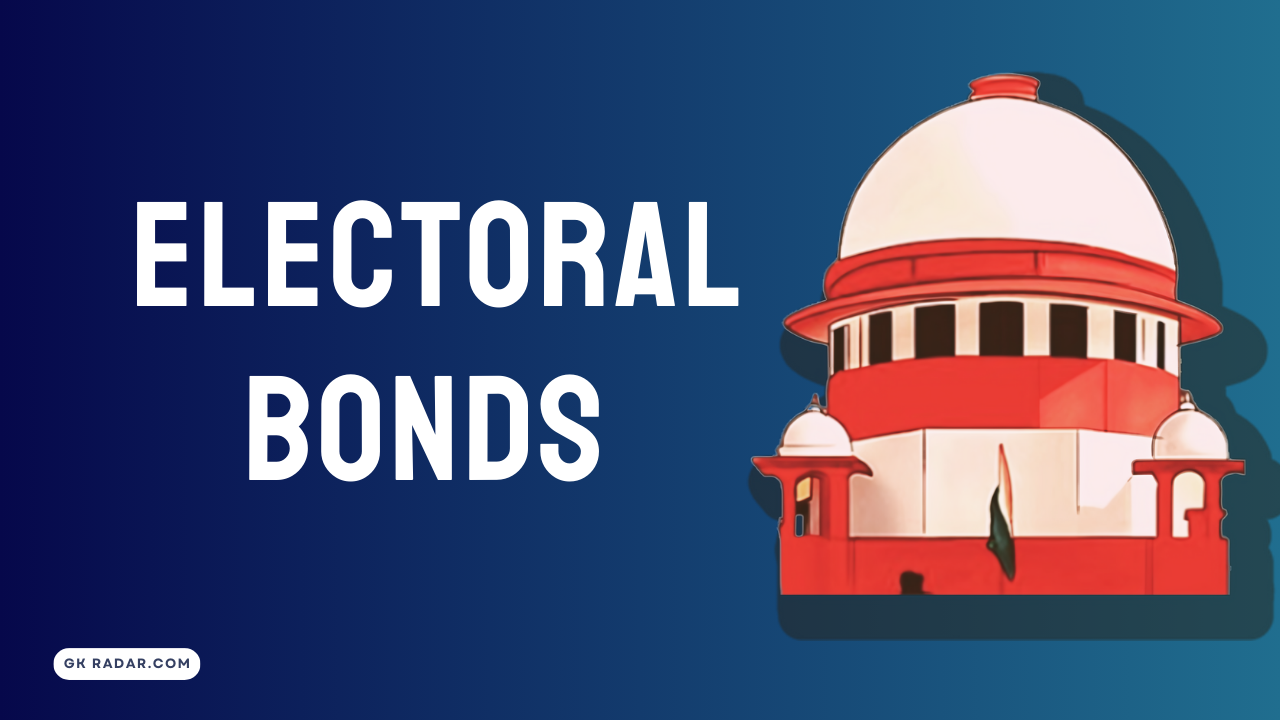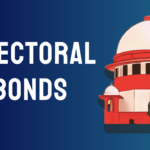An electoral Bond is a bond issued in the form of a Promissory Note. It is a bearer Banking Instrument and doesn’t carry the name of the Buyer.
Why was the Electoral Bond needed:
To curb black money and corruption in 2017 the government of India introduced the Electoral Bond in the Finance Act 2017. After the Fiance Act 2017, the mode of funding to Political parties has changed completely. With the help of this law now funds received by political parties can be considered “clean” money
| Political Funding in India Before the Act: | Political Funding in India After the Act: |
|---|---|
| Political Parties have to keep a record of receiving funds more than Rs. 2000/- | After the Act, the Political Parties now don’t have to keep a record of receiving funds through Electoral Bonds. |
| Before Political Parties can receive money in the form of cash from Individuals. | If political parties receiving money exceeds Rs. 2000 then they have to use Electoral Bonds, by a Cheque or Bank Drafts. |
| Any company (Indian, foreign, and even shell companies) established in India now allowed to donate the political parties without any limit. | After the act, they were allowed to disclose the total amount of political donations and not the name and details of the political party. |
| After the act, they were allowed to disclose the total amount of political donations and not the name and details of the political party. | After the act, they allowed to disclose the total amount of political donations and not the name and details of the political party. |
Electoral Bonds Features:
- Here are some important features of Electoral Bonds:
- Introduced to curb black money or money laundering.
- Any individual with a KYC-compliant account can purchase the bonds and can then donate them to the party.
- Can be purchased from the authorized branches of the State Bank of India ( Only 29 specified SBI branches are Available for Purchase all over India in various cities)
- It is a non-refundable banking instrument.
- Political parties who have secured not less than 1% of votes in the last Lok Sabha or Assembly election are eligible to receive the donations.
Electoral Bonds Criticism:
- Some organizations have welcomed the Electoral bonds and some others criticized the Electoral Bonds as they could promote money laundering and an influx of black money in India.
- Some people argued that the anonymity of the donor could lead influx of black money to India.
- According to the Congress party, Donations made through electoral bonds are the same as money laundering
- Opponents of the EBs explained how roads are cleared for big companies to donate huge amounts of money to political parties without informing their shareholders.
- The central bank warned the government, stating concerns that the bonds might reduce faith in Indian currency and offer chances for money laundering.
Key Highlights of Supreme Court Verdict on Electoral Bonds:
- The Supreme Court Highlights it as unconstitutional as anonymity of the donor Violates the right to information under Article 19 (1)(a)
- Allowing Big corporations to donate large amounts of funds to political parties violates Article 14
The Apex Court issued some directives to SBI to submit the details of the Electoral Bonds i.e.
- The name of the buyer
- The Denomination Puraches with Date of Purchase
- Political Party who encashed the electoral Bond with denomination and Date of encashed since 12 April 2019,
- Also directed the Election Commission to Publish the same above details on its official website as soon as (within one week) received the details from SBI







